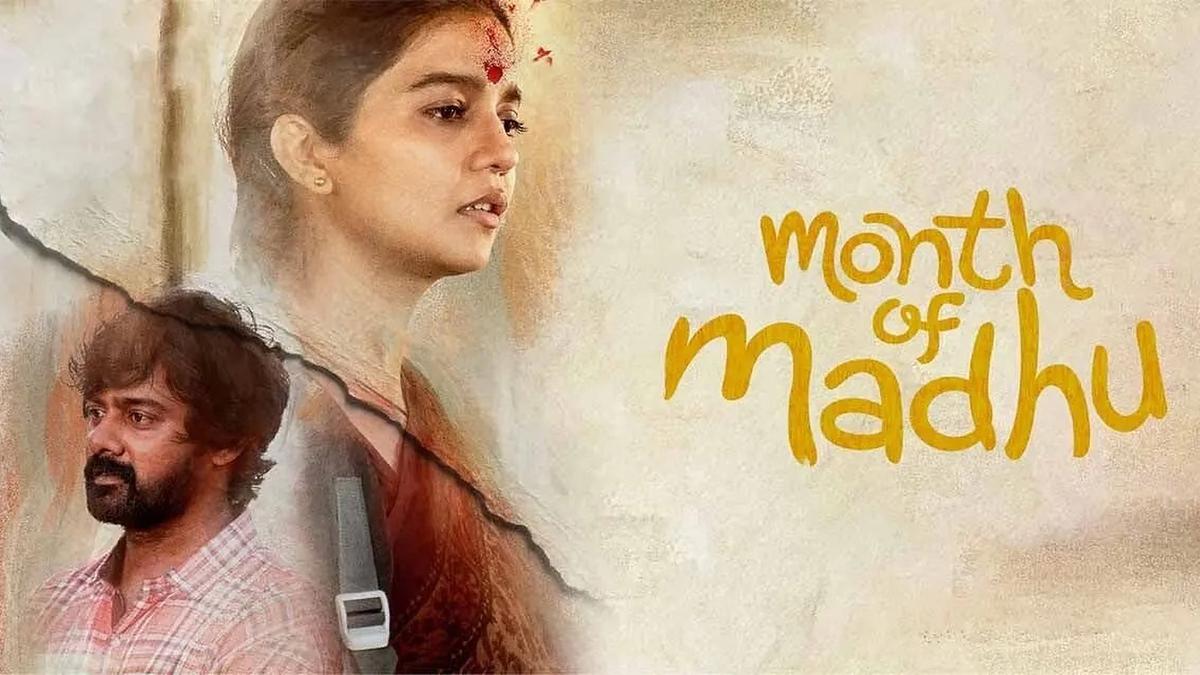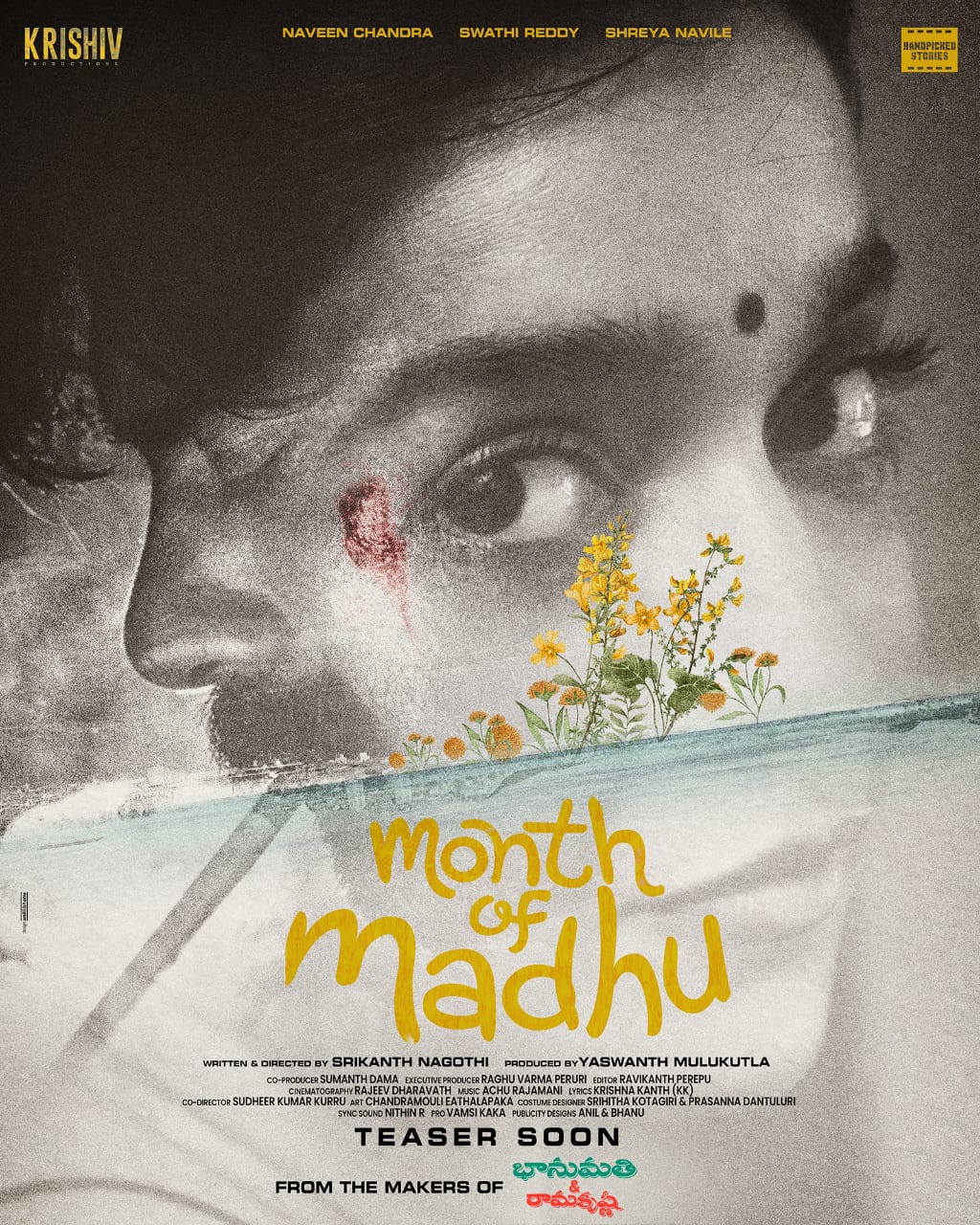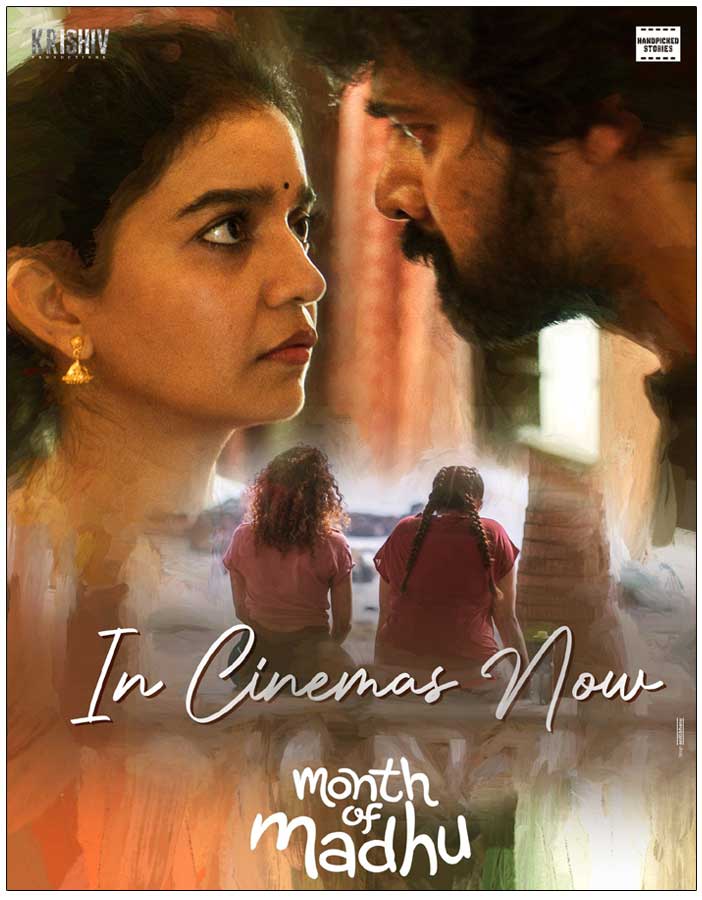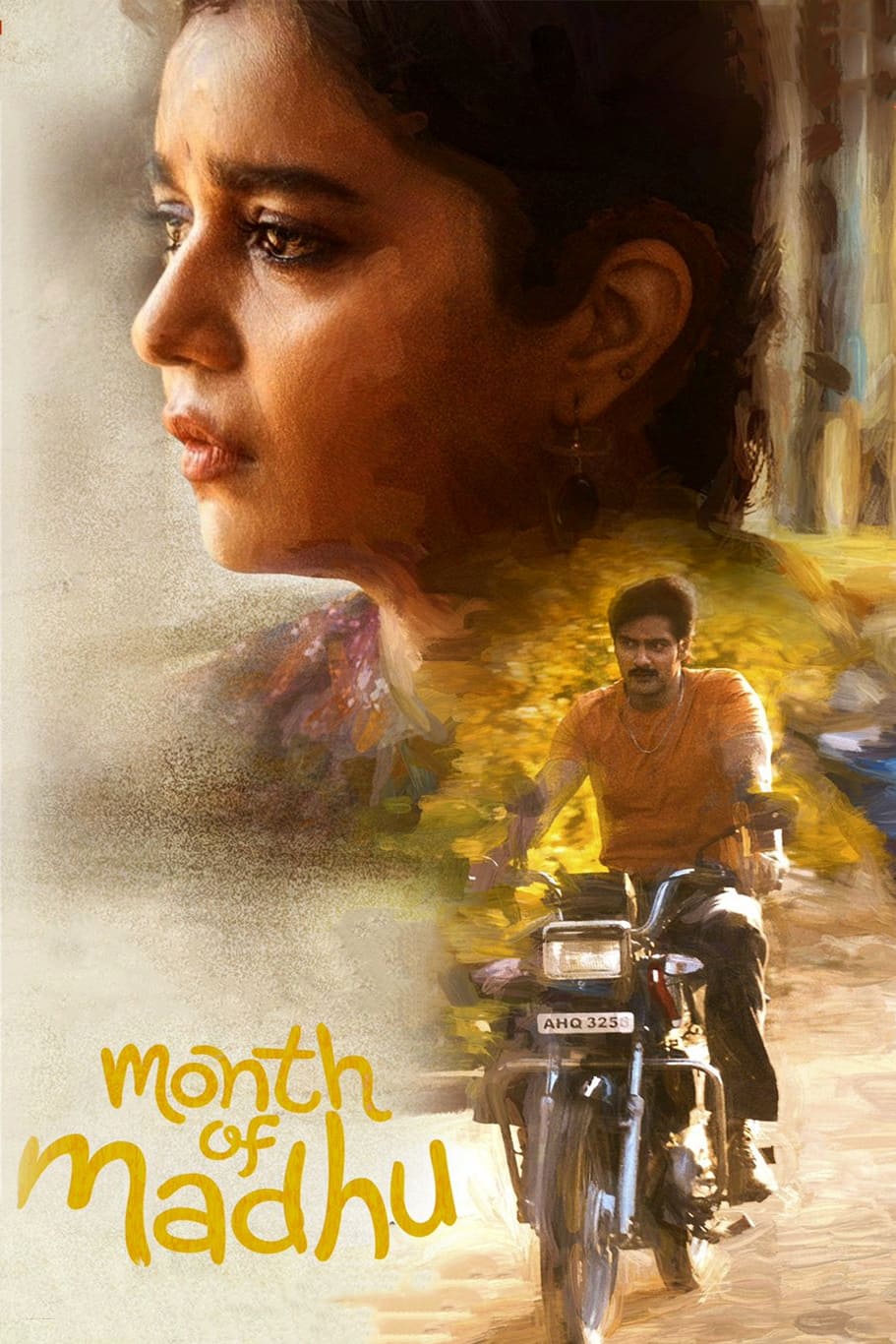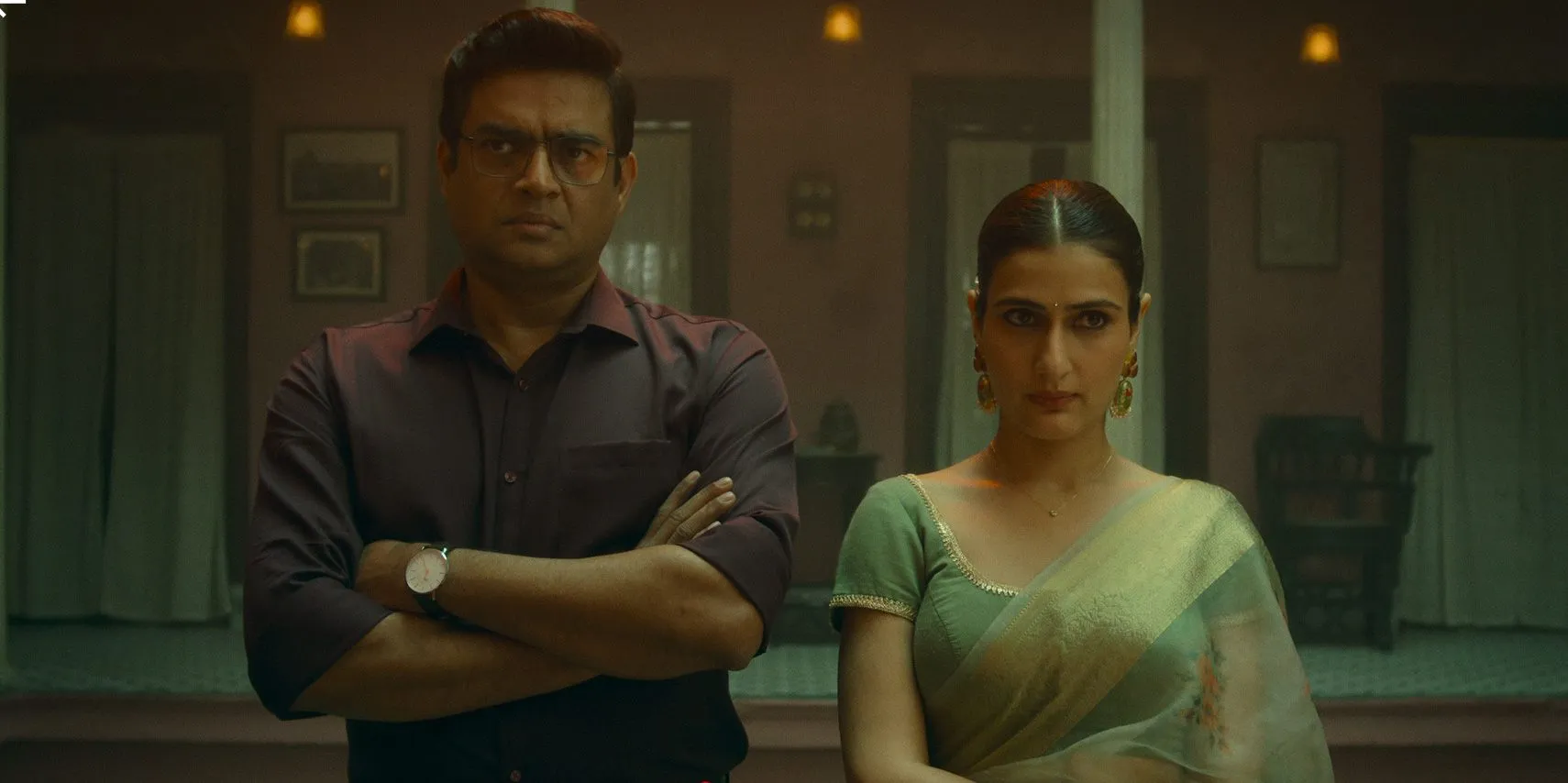Written and directed by Srikanth Nagothi, Month of Madhu intricately weaves together the lives of two characters, Madhumati (Shreya Navile) and Madhusudhan (Naveen Chandra), as their paths unexpectedly cross. Madhumati, a 19-year-old Indo-American navigating the complexities of a family wedding in Vizag, experiences an unforeseen turn after a disagreement with her mother.
Simultaneously, Madhusudhan, a divorced and unemployed man, grapples with the aftermath of his failed marriage to Lekha (Swathi Reddy). The film promises a profound exploration of relationships and self-discovery as these lives intersect on one fateful evening, offering a complex depiction of the profound impact of unexpected encounters and the intricate threads of human connections. With a commitment to emotional depth and authenticity, Month of Madhu invites viewers into a compelling narrative of intersecting destinies.
Srikanth Nagothi, the director, boldly ventures into untouched storytelling territories, with a commendable courage to break free from traditional narrative structures. with an ensemble cast that includes Swathi Reddy and Naveen Chandra, the film truly explores relationships spanning various age groups. With editor Ravikanth Perepu and cinematographer Rajeev Dharavath, Nagothi skilfully opens a window into the lives of a diverse set of characters, offering a nuanced portrayal of the intricate web of human connections and the multifaceted nature of relationships.
In essence, the film becomes an engaging discussion about women’s autonomy, crafting a narrative that celebrates self-determination.
In essence, the film becomes an engaging discussion about women’s autonomy, crafting a narrative that celebrates self-determination. However, the unconventional approach of the movie in storytelling may not be for everyone, but for those prepared to venture beyond the box, it provides a gripping and authentic cinematic experience.
Breaking the body conformity by the society
Madhumathi (played by Shreya Navile), is a 19-year-old NRI navigating the swirl of late-teen worries. Her quest begins when she travels to India for a month, hoping to break free from cultural standards and rediscover herself amid the rich tapestry of a family wedding.
Through her refusal to conform to social norms and expectations, Madhumathi’s character becomes a force for the redefinition of women’s roles. Her rebellious path breaks through the traditional barriers that are placed on women, especially about cultural conformity and body image. The movie supports a story that celebrates women for accepting who they are as unique individuals and escaping the confines of conventional norms.
Intertwining different elements of these people’s lives creates a mosaic of human experiences. The decision to explore the vulnerabilities of body image, societal expectations, and the search for identity adds a new layer of depth to the story.
Month of Madhu recognises the intersectionality of women’s experiences by acknowledging that women’s roles are varied and influenced by elements such as age, cultural background, and societal expectations. The film adopts a more inclusive feminist narrative that recognises the diversity of women’s experiences and questions the idea of a single, monolithic definition of women’s responsibilities.
How Month of Madhu challenges the marital expectations that rest on women
The character of Lekha in Month of Madhu serves as a dynamic lens through which the film addresses and challenges ingrained cultural expectations placed on women in the context of marital dynamics. The narrative goes below the surface of her failing marriage to Madhusudhan to show the intricate problems that women like Lekha frequently confront. The film puts the viewers’ attention on Lekha’s emotional neglect within her marriage. It dives into the nuances of her emotional environment, highlighting the impact that unfulfilled demands and repressed feelings may have on a woman’s well-being.
The character of Lekha in Month of Madhu serves as a dynamic lens through which the film addresses and challenges ingrained cultural expectations placed on women in the context of marital dynamics.
Month of Madhu highlights that women in marriages are also people with ambitions, aspirations, and emotional requirements by depicting Lekha’s emotional journey. Furthermore, Month of Madhu questions traditional norms that lay the task of keeping families intact squarely on the shoulders of women. Lekha becomes a symbol of challenge to the greater societal belief that women should carry primary responsibility for the success and stability of a family unit. This standard is challenged in the film, which emphasises that a woman’s identity and worth should not be determined only by her role in sustaining familial harmony.
The narrative rejects the idea that women should suffer silently from emotional neglect or be the primary architects of resolving difficult relationships, arguing that partnerships require mutual effort and understanding.
Month of Madhu contributes to a bigger discourse about the need to break away from traditional gender norms by placing Lekha’s story within a wider context of societal constraints and gendered expectations. The film challenges viewers to reconsider and reinterpret the roles that women play in marriages, promoting a more equitable and empathic approach to understanding the complexities of relationships.
Embracing a journey of self-discovery and freedom
In Month of Madhu, both Lekha and Madhumathi, the prominent women characters, go on their journey to find themselves. Their major choices to resist restrictive standards and pursue their emotional well-being stand out as strong expressions of freedom.
Madhumathi’s quest for self-discovery becomes a powerful symbol of empowerment in a way as she grapples with late teen anxieties and societal pressures. Month if Madhu underscores the importance of women navigating their paths to self-realisation as it advocates for the idea that women can define their identities beyond predefined roles and expectations, promoting a narrative of individuality and independence.
The film has instances in which the female characters, particularly Madhumathi and Lekha, make intentional decisions that are in line with their personal needs and desires.
The film has instances in which the female characters, particularly Madhumathi and Lekha, make intentional decisions that are in line with their personal needs and desires.
Madhumathi’s defiance of societal expectations, particularly in terms of body image and cultural conformity, demonstrates the significance of women demanding autonomy over their identities.
Similarly, Lekha’s decision to address her failing marriage’s emotional neglect undermines the traditional role of women as silent sufferers or lone saviours of marriages. Lekha becomes a catalyst for changing women’s responsibilities within the context of marriage by prioritising her emotional well-being.
This reinvention of women’s roles, as represented in Month of Madhu, delivers a strong message that women are self-sufficient people capable of creating their futures. The film offers a plot in which women are not bound by preconceived societal expectations and are instead empowered to make choices that lead to personal fulfilment and genuine happiness.
However, the movie can be called out for its uneven pacing, character development, predictable narrative arcs, and unresolved issues. Some viewers may find the film’s lingering moments to be detrimental, while others may find the film’s distinct characters to be flat. For some viewers, predictability may lessen the element of surprise, reducing the overall effect of important plot points. Furthermore, despite ambiguity being an important storytelling tool, the film’s open-ended stories may leave fans seeking more closure.
While the film touches on cultural constraints and gender stereotypes, some critics believe it should go deeper into these topics. A more in-depth examination of cultural factors and their impact on the lives of the characters could create a more comprehensive social critique.
A more in-depth examination of cultural factors and their impact on the lives of the characters could create a more comprehensive social critique.
Also as the film embraces the indie approach, people accustomed to mainstream traditions may perceive the execution as faulty. Some viewers may find the unique story structure difficult to follow, thereby restricting the film’s appeal to a broader audience.
In essence, Month of Madhu is not without its challenges. While it succeeds in giving a fresh viewpoint on relationships, fixing these issues could improve the film’s overall efficacy and appeal to a broader audience. Overall, the film undoubtedly becomes a voice for women’s independence, emphasising the transformational power of individual decisions in breaking free from oppressive systems.
